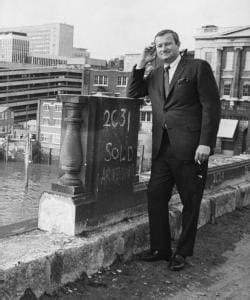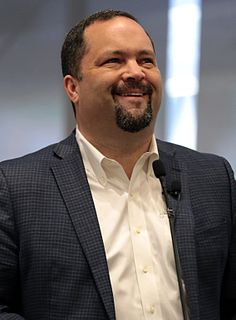A Quote by James Comey
Serious debates are taking place about how law enforcement personnel relate to the communities they serve, about the appropriate use of force.
Related Quotes
The importance of making sure that the sense of accountability when, in fact, law enforcement is involved in a deadly shooting is something that I think communities across the board are going to need to consider, we have a great opportunity, coming out of some great conflict and tragedy, to really transform how we think about community law enforcement relations so that everybody feels safer and our law enforcement officers feel, rather than being embattled, feel fully supported.
There is no question that Darren Wilson caused the death of Michael Brown by shooting him, but the inquiry does not end there. The law authorizes a law enforcement officer to use deadly force in certain situations. The law allows all people to use deadly force to defend themselves in certain situations.
Racial profiling punishes innocent individuals for the past actions of those who look and sound like them. It misdirects crucial resources and undercuts the trust needed between law enforcement and the communities they serve. It has no place in our national discourse, and no place in our nation's police departments.
Well, when people talk about interrogating terrorists, they're acting like this is some sort of law enforcement function. Law enforcement is about gathering evidence to take someone to trial, and convict them. Anti-terrorism is about finding out information to prevent a future attack so the same tactics do not apply.
It is a serious undertaking and yes, we do need more fencing and we do need to use technology, and we do need more border control. And we need to have better cooperation by the way with local law enforcement. There are 800,000 cops on the beat, they ought to be trained to be the eyes and ears for law enforcement for the threat against terror as well as for immigration.
Your decision to place your law enforcement resources in these communities is racism, but nobody has called people out on this. The law itself is not racist. But people's decision about where we're going to place our efforts, who we're going to prosecute, who we're not going to prosecute, is racism. And nobody's calling them on it.
Most people have no idea what cops really do. They think cops give you a speeding ticket. They don't see the cops associating with professional criminals and making money in the process. They believe that when a guy puts on a uniform, he or she becomes virtuous. But people who go into law enforcement do so for the trill of wielding power over other people, and in this sense, they relate more to the crooks they associate with than the citizens they're supposed to protect and serve. They're looking to bully someone and they're corrupt. That's law enforcement.
The DOJ has employed these investigations in communities across our nation to reform serious patterns and practices of force, biased policing and other unconstitutional practices by law enforcement. I'm asking the Department of Justice to investigate if our police department has engaged in a pattern or practice of stops, searches or arrests that violate the Fourth Amendment.
I have spent years representing victims of racial profiling and police brutality and investigating patterns of drug law enforcement in poor communities of color - and attempting to help people who have been released from prison attempting to 're-enter' into a society that never seemed to have much use to them in the first place.



































